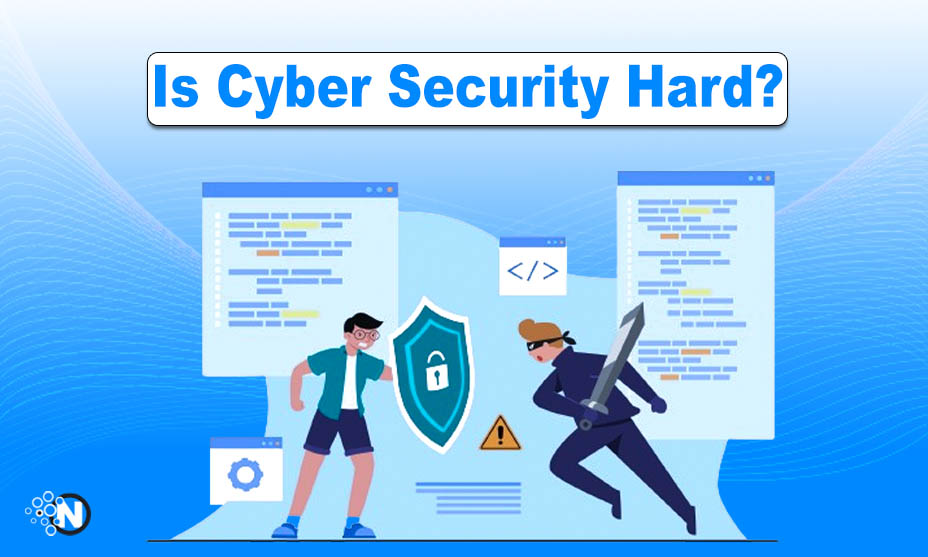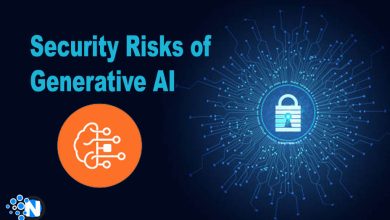Is Cyber Security Hard? Understanding the Challenges and Rewards

Cybersecurity is a crucial and evolving field of study in today`s digital world. As technology advances, cyber attacks and cyber security concerns are also increasing. Building and implementing effective cybersecurity protocols is one of the most crucial goals of any business or organization.
Are you looking for a better understanding of cyber security, prevailing challenges, and its rewards? This article will enable you to better understand cyber security, its challenges, and its rewards. Building efficient cyber security protocol is not hard once you know the fundamental challenges available tools and attain the required skills.
What is Cyber Security?
Cyber security is a comprehensive strategy for protecting systems and networks from data breaches, unauthorized access, and cyber attacks. It consists of a combination of software and hardware to cope with vulnerabilities and minimize the risk of external threats.
Is Cyber Security Hard?
Cybersecurity is a vast field that covers multiple disciplines. Its goal is to reduce cyber-attack risks and protect systems, networks, and digital assets from external attacks. The cyber security ecosystem includes professionals, technology, and processes designed to achieve common goals.
Cyber attacks range from simple phishing attacks to complex malware attacks and précised hacking attacks. The hard part about building an effective cyber security system is understanding these threats and developing mitigation strategies. To take over cyber security, you must have solid skills in encryption, operating systems, network protocols, and programming.
Prevailing Challenges in Cyber Security
Ransomware Attacks:
Ransomware is a major challenge in cyber security in today`s digital era. A high number of ransomware attacks have been observed in the past few years, and the tendency is increasing continuously. Normally, attackers demand money after capturing systems or networks. As a security expert, you need to build an effective cybersecurity system to prevent ransomware attacks.
Internet of Things (IoT) Attacks:
Compared to other devices, IoT devices lack security protocols and are more vulnerable to cyber-attacks. Attackers use IoT devices to get access to central systems and databases. In most cyber attacks, IoT devices are compromised. Typically, hackers installed malware on these devices to hack or access sensitive data and information. Due to these attacks, organizations may suffer financial and operational losses.
Cloud Attacks:
The evolution of computing and data storage technology has entirely changed data storage techniques. Cloud services are designed to facilitate data storage for businesses regardless of size and industry. One way cloud services are enabling businesses is by increasing the threats of cyber-attacks and data breaches.
Data breaches and cyber-attacks increase if there is a lack of data encryption, effective cloud setup configuration, and authentication protocols. As a security expert, you need specialized expertise to cope with these challenges.
Phishing Attacks:
Phishing attacks are designed to obtain users’ personal information (such as usernames, passwords, credit card details, etc.) through social engineering. Often, phishing attacks are executed by sending emails, messages, or notifications to the targeted person. These emails or messages contain malicious links that install malware on the targeted systems.
In Phishing attacks, individuals are targeted to gain access to systems and data. It is one of the most critical challenges in building an effective cybersecurity system. Building strong firewalls and cyber security systems alone is not sufficient. You need to educate individuals via training to cope with this challenge.
Insider Attacks:
Another challenge in cybersecurity is internal attacks. While organizations need to protect their digital assets from outsiders, internal threats are also present. Internal threats come from internal employees who have access to internal systems and data.
Employees may gain unauthorized access to systems to exploit security and leak confidential data. In return, organizations may suffer financial loss and reputational damage. You need to monitor information and incoming/ outgoing traffic. Another strategy is to implement a two-way authentication process to ensure user authenticity.
Rewards of Building an Effective Cyber Security
Once an effective cyber security strategy is designed and implemented, it comes with numerous rewards for organizations, including protection from cyber attacks, Protection of sensitive data, building customer trust, and compliance with regulations. Further, it enables businesses to attain cost efficiency and enhanced brand reputation.
Robust Protection from Cyber Attacks:
Cyber security’s main advantage is that it enables businesses to protect their digital assets from cyber-attacks. It is compulsory to design and implement top-notch cyber defense strategies and robust threat detection methods. Cybersecurity protocols protect sensitive data and prevent unwanted access to networks and systems.
Protecting the Sensitive Data:
Another advantage of building an effective cyber security protocol is protecting an organization’s sensitive information through vigorous data protection measures, encryption/ decryption strategies, and protected communication channels. Encryption involves converting the data/ message into codes during transit, and decryption is the process of converting the codes back into messages with the help of a decryption key.
Building Customer Trust:
Developing and implementing effective security protocols enables organizations to protect customers’ sensitive data and information. It shows that you prioritize customer data protection, creating a sense of security in customers and enabling you to win their trust.
Compliance with Regulations:
Several regulatory bodies, such as SOC, DSS, PCI, HIPPA, and GDPR, play vital roles in protecting customers’ and organizations’ data. Building effective cyber security measures ensures compliance with prevailing cybersecurity Regulations. It enables you to stand out and demonstrates a sense of responsibility towards customer data protection.
Cost efficient:
Another reward of building an effective cyber security strategy is reducing the costs incurred in case of cyber attacks. These costs involve damage to systems and servers and loss of confidential company data. Once you have to spend resources on building effective cybersecurity protocols, the cost is way less than the benefits that come with it.
Enhanced Brand Reputation:
Implementation of effective cyber security protocols enables businesses to protect their digital assets, including systems, networks, and customers’ data. Once this milestone is achieved and practiced over the years, it increases brand reputation, ultimately leading to brand loyalty.
Final Statement
Building effective cyber security protocols is crucial for businesses and organizations to protect their digital assets and customer’s data. Understanding the prevailing challenges in cybersecurity enables you to build effective security protocols. These attacks consist of ransomware attacks, IoT attacks, cloud attacks, and phishing attacks.
Once adequate cyber security is built and implemented after a comprehensive understanding of prevailing challenges concerning the business model. It comes with multiple benefits/ rewards for businesses, including protection of sensitive data, protection/ prevention of cyber attacks, building customer trust, enhanced brand reputation and compliance with prevailing data protection regulations.
FAQs
Q1: What are the 5C of Cyber Security?
The 5Cs of cyber security are Change, Continuity, Cost, Compliance, and Coverage.
Q2: What is the main cyber security threat?
Malware is the main cyber security threat.
Q3: Does improved cybersecurity have an impact on customers?
Yes, improved cybersecurity enables organizations to earn the trust of customers.
Q4: Why do organizations need cybersecurity?
The main purpose behind cybersecurity is to protect organizations’ digital assets.




